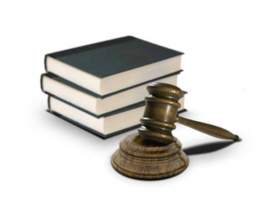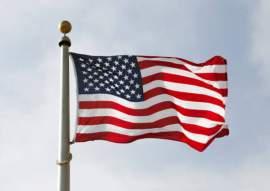
Federal Property Explained

Popular In Constitution
Purpose Of Lifetime Appointment And Pros And Cons Enumerated Powers Bicameral Legislature Background Article 3 Of The Constitution We The People 1st Amendment Who Wrote The Constitution Judicial Review Equal Protection Clause 5th Amendment 10th Amendment Three Fifths Compromise
The second clause that resides within the third section of Article 4 is entitled "Federal Property and the Territorial Clause". It authorizes Congress to do away with as well as create and maintain all lands existent within each State residing as Federal properties. In addition, it specifies that nothing within the Constitution will place any restraints whatsoever upon the right of the United States Government to reign over such rules for each State. The Government reserves the right to set aside lands by its own volition.
This Clause allows Congress to reside over the transactions attached to that of Federal property. This leaves the United States as the final authority when referencing concerns of Federal properties. One specific issue that arose in connection to Federal properties of the United States was that of what was termed "insular areas", according to Congress. Cases referring to these areas were ruled by the Supreme Court, who then decided that these areas entailed regions or lands that the United States did maintain ownership over, but also simultaneously did not exist as a real part of the country. Due to this specification, Congress was granted the authority to impose specific parts of the Constitution to distinct areas.
Such an area that raises this Clause as its area of contention is that of the region of Puerto Rico. Up until now, Puerto Rico has maintained itself as residing under "United States sovereignty" as a "commonwealth." Throughout many attempts to detach itself from the United States, results have always retained previous decisions, including maintenance of its commonwealth status.
Despite the wish of some to retain independence, it seems that still many more wish things to remain the same. Despite a specified amount of autonomy maintained by the commonwealth, the United States still retains absolute power in terms of governing this island.
In the Supreme Court case Downes v. Bidwell, seen as a landmark case in relation to that of insular cases, it was held that the United States be allowed to attain lands as well as employ absolute power in the determination of the rights of its residents. This set forth the term sometimes used, which is that of "unincorporated territories," which may then be attached to the island of Puerto Rico as one such example.
NEXT: Full Faith and Credit Clause




















